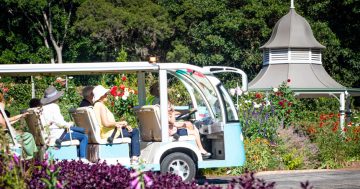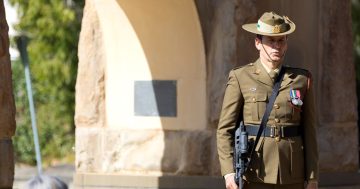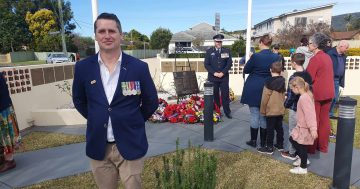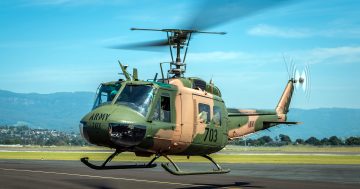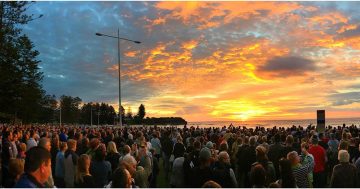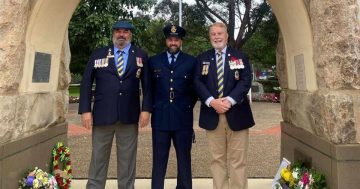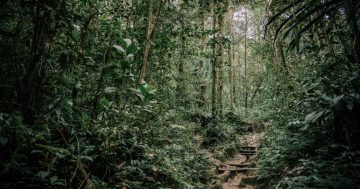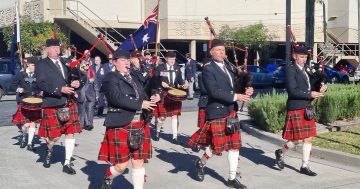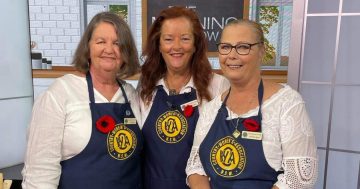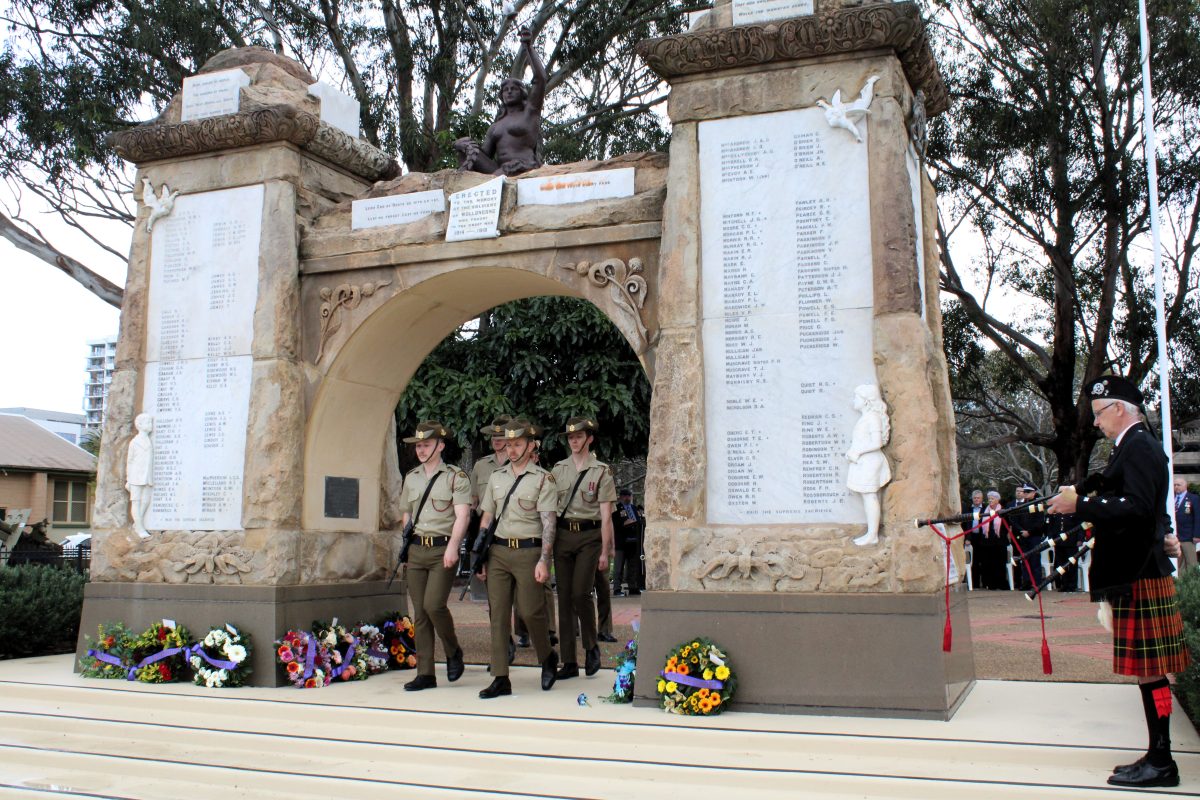
The community marked 80 years since the end of WWII at a VP Day service in Wollongong. Photos: Keeli Dyson.
Community members from across the Illawarra have come together to honour those who served in World War II and recognise the impact the conflict had on shaping our national identity and country into what it is today.
A special Victory in the Pacific (VP) Day service was held at the cenotaph in Wollongong’s MacCabe Park to mark 80 years since Japan accepted the Allied demand for unconditional surrender and World War II was declared over, with politicians and business representatives connecting with veterans and RSL members from right across the region.
“Most sub-branches will hold their own Anzac Day service, but VP Day is one where all of the sub-branches can come together,” City of Wollongong RSL sub-branch secretary Peter Lipscomb said. “And we’re always honoured to get great support from Alison Byrnes, from Paul Scully and our local Wollongong Council.”
While there are only three surviving veterans in the Illawarra from World War II, the personal connections within the community are still vast and events like VP Day help to create a space for people to remember and pay respects to their loved ones.
“It’s important that the following generations, as we do with World War I soldiers, that we don’t forget the honour and sacrifice of that war,” Mr Lipscomb said.
“There are lots of people who have relatives that have served during World War II,” City of Wollongong RSL sub-branch president John Sperring said.
“My late father served overseas in Europe from 1939 and then later on in Papua New Guinea as one of those reinforcements that were brought over by John Curtin, and then he went on to briefly serve in Borneo right at the end of the war and came home in ‘45.”
“It gives them an opportunity to come to a service like this and grieve, if they are still grieving, and honour them and wear the medals if they’ve got them.”
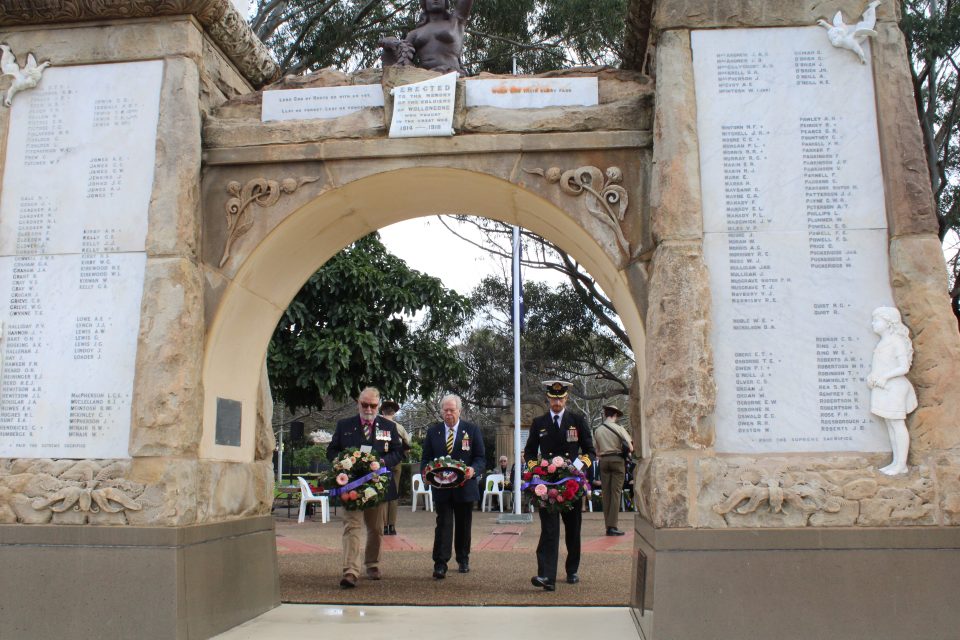
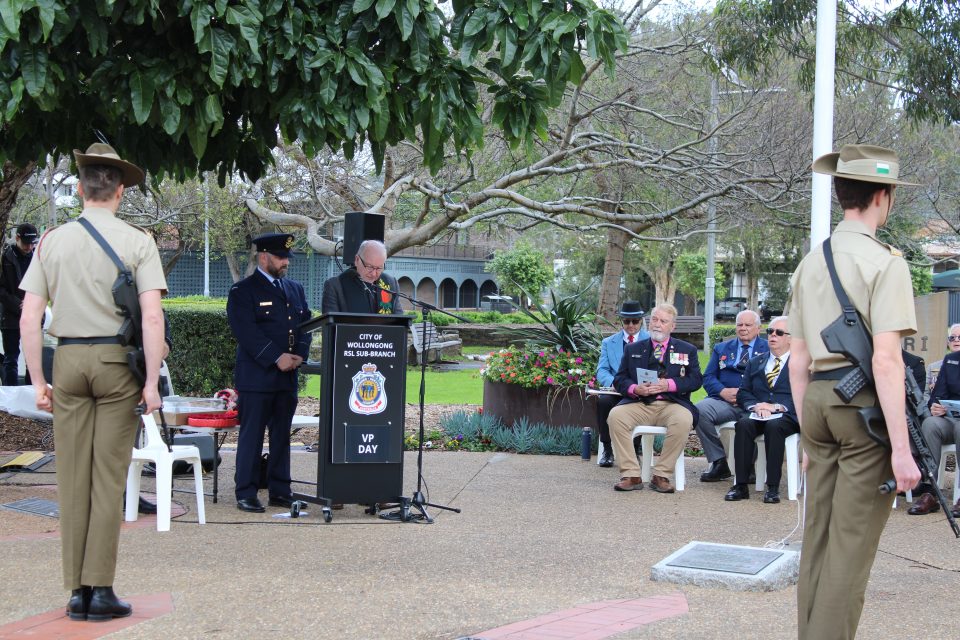
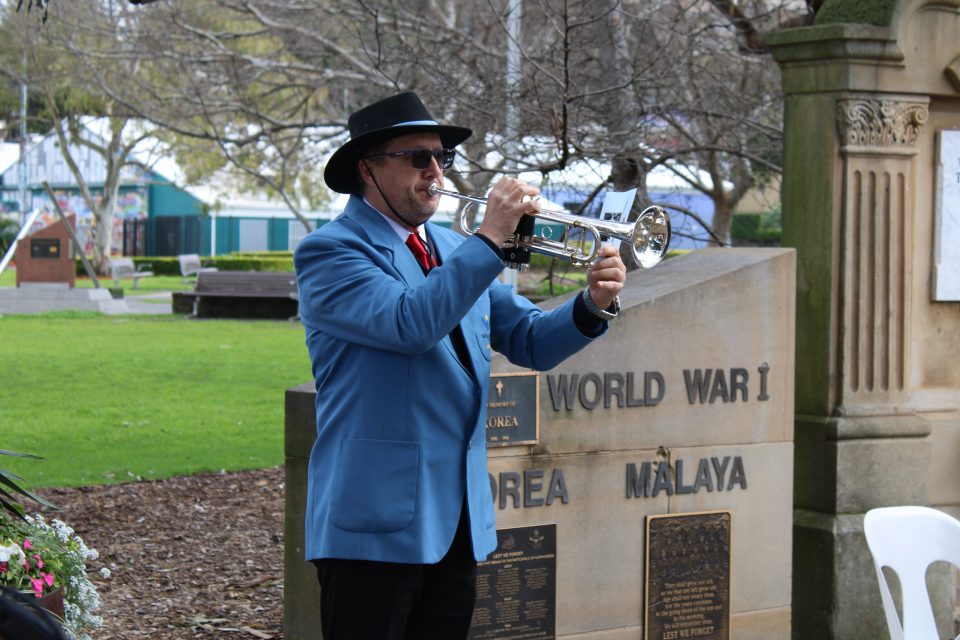
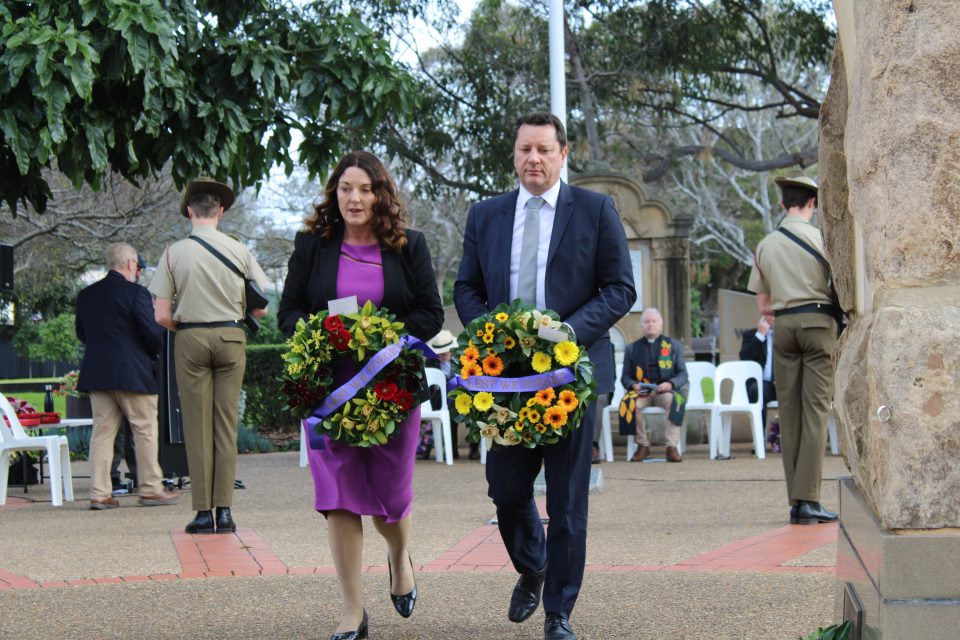
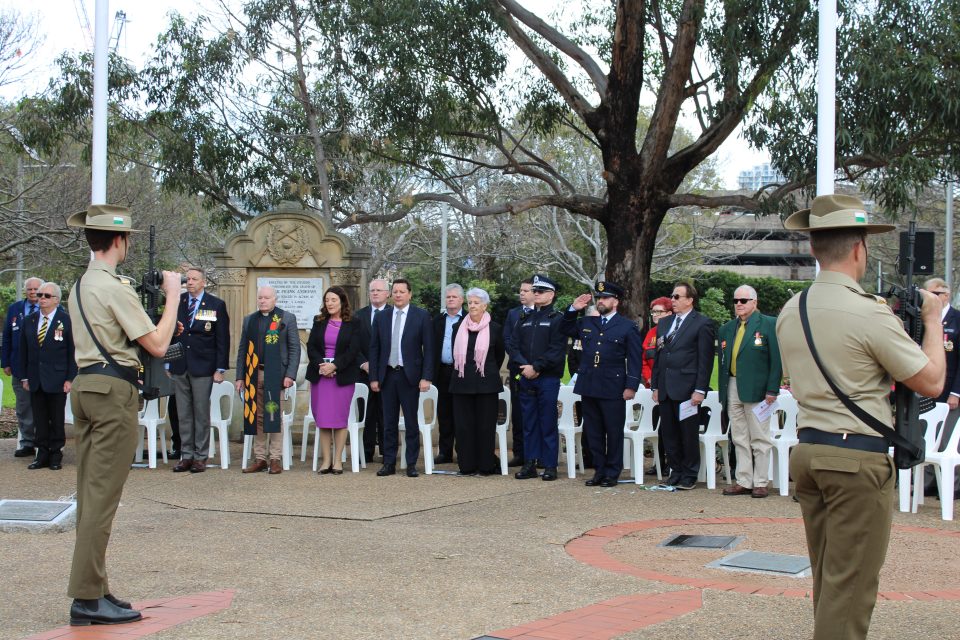
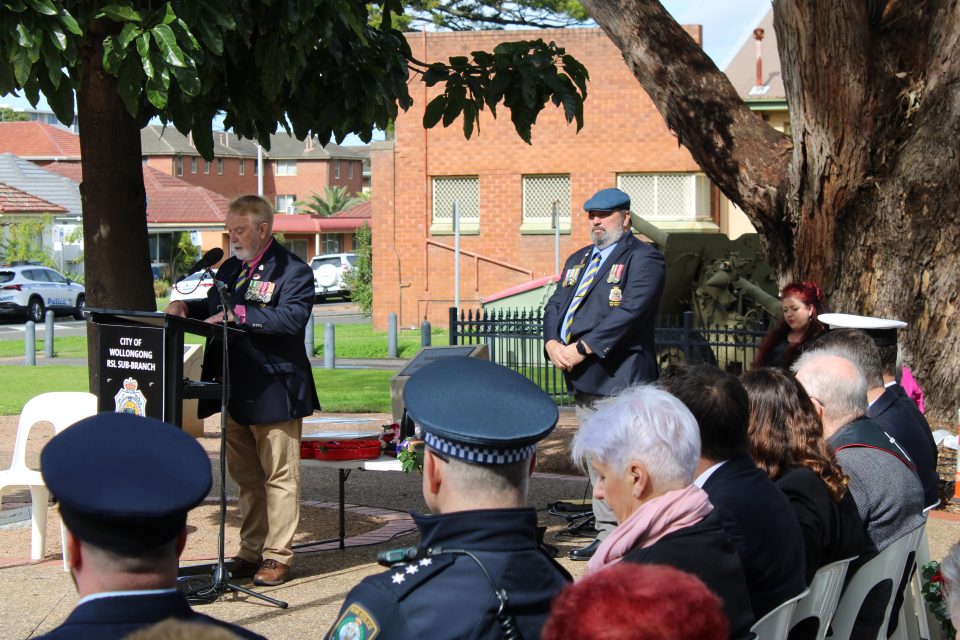
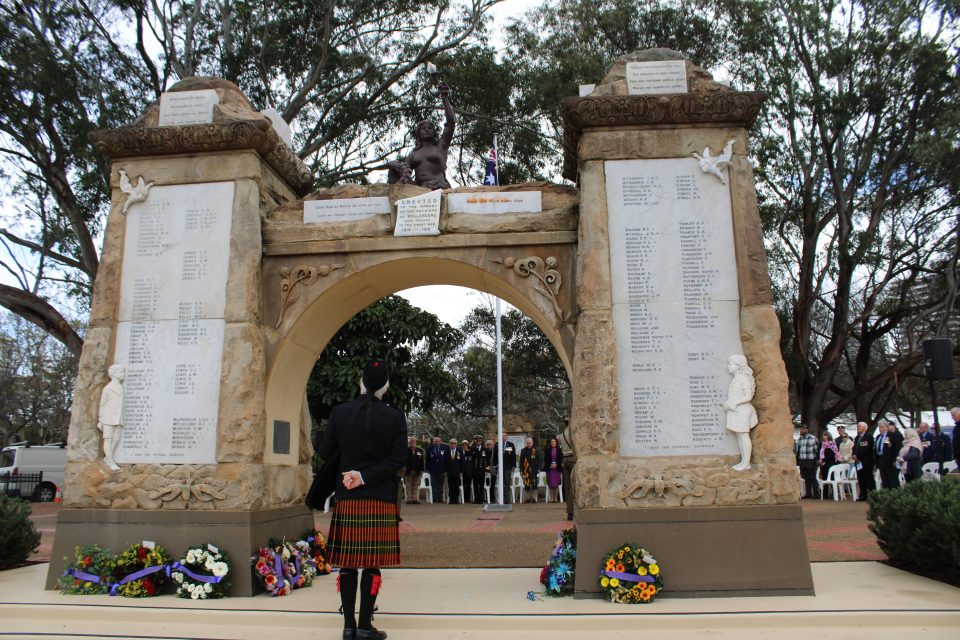
During his VP Day address, Mr Sperring spoke not only of the sacrifice and bravery of the servicepeople, but also of the effect the conflict had on the country as a whole.
“The war in the Pacific in particular had a profound impact on Australia,” Mr Sperring said.
“From the bombing of Darwin and Broome, midget submarines in Sydney Harbour, the sinking of merchant shipping off the east coast, sea battles in the Coral Sea, to the land and air battles in New Guinea in various islands, Australia played a significant role in the Allied war effort.”
The impacts continued to be seen long after the fighting ceased.
“The end of the war brought relief but also brought new challenges,” Mr Sperring said.
Returning servicemen faced physical and mental injuries, with many struggling to adjust to civilian life and settle back into something resembling normal life.
“The impact on the Australian population was profound, with many families affected by the loss or injury of loved ones.”
As Australia recovered from the war’s devastating impact, changes took place that proved to be crucial in the way our country grew and developed.
“In the aftermath of World War II, Australia experienced significant changes. The war had stimulated industrial development, and the country began to shift towards a more modern diversified economy, less reliant on agriculture and farming,” Mr Sperring said.
“The post-war period also saw a mass influx of immigrants, which transformed Australia’s cultural and social landscape.”
And through acknowledging events like VP Day and the lasting impact of those who served and sacrificed, the community looks to continue to learn and grow into the future.
“We remember the lessons of history,” Mr Sperring said. “We recognise the importance of peace, diplomacy and international cooperation and we strive to build a better future for all Australians.”








